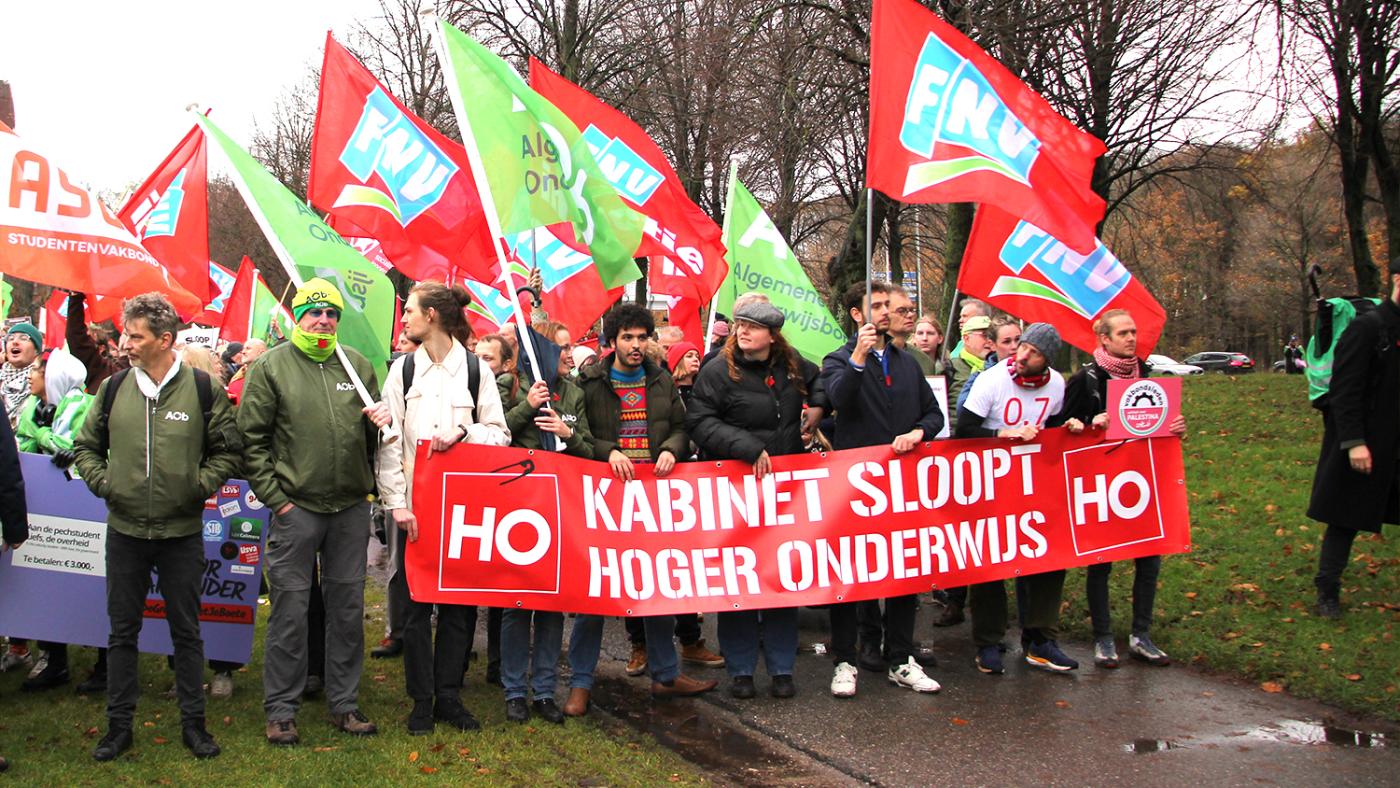House of Representatives debates education budget
Opposition seeks to block new austerity measures

PVV, VVD, NSC and BBB initially wanted to cut even more money from the education and research budget. They also wanted to introduce a fine for students who take longer than usual to graduate and reduce the number of international students.
However, they do not have a majority in the Senate. In December, they reached a compromise with the three Christian parties CDA, SGP and ChristenUnie, as well as with JA21. Some of the austerity measures were scrapped altogether, while others were watered down.
These opposition parties were unpleasantly surprised when the Spring Memorandum (in which the cabinet addresses financial setbacks) revealed further budget cuts of around 400 million euros, mainly affecting primary and secondary education. Vocational and higher education also has to cut millions of euros.
Cabinet falls
But then the cabinet fell and opposition parties are seizing their chance to make a change, as became clear on Wednesday during the debate on the Spring Memorandum. ‘Now that the racist and far-right PVV is out of the cabinet,’ said Member of Parliament Doğukan Ergin (DENK), "we can say goodbye to their destructive and failed policies. We can sweep those painful cuts to the education budget off the table.‘
Other parties displayed a calmer tone. André Flach (SGP) wanted to know why new budget cuts to education had been announced after the compromise with the opposition. ’Surely the cabinet realises that there is no political majority for this?"
Amendments submitted
Several amendments have been submitted to scrap the budget cuts in whole or in part. ‘Elections are coming,’ emphasised Jimmy Dijk of the Socialist Party.
An amendment to reverse everything (including previously announced cuts by this cabinet) came from D66, GroenLinks-PvdA, PvdD, Volt, SP and DENK.
The Christian parties and JA21 are not included in this list. They and D66 are supporting a different amendment, which only concerns the new cuts announced in the Spring Memorandum. This seems to be a feasible proposal, therefore.
Instead of cutting back on education, these opposition parties want to encourage people to take their state pension a little later (which would cost them 200 million euros). They also want to increase fines for price fixing between companies (which would also generate 200 million euros).
NSC has already opened the door a crack. Member of Parliament Folkert Idsinga did not want to commit to anything yet, but called it a sympathetic amendment: ‘My colleague who is responsible for education will be radiant about that.’
Sweet versus sour
Finance Minister Eelco Heinen (VVD), on the other hand, saw little merit in it. ‘I am the last person in The Hague still defending the Spring Memorandum. Everyone wants to defend the sweet stuff, but I am standing alone here for the sour stuff.’ In fact, he even defended the scrapped penalty for students taking too long to graduate, which he believed would have worked well.
If the amendment proposed by the self-proclaimed monster coalition (D66, JA21 and the Christian parties) is passed, it will save universities and colleges up to 59 million euros in 2030. The institutions will also receive more money to offset inflation.